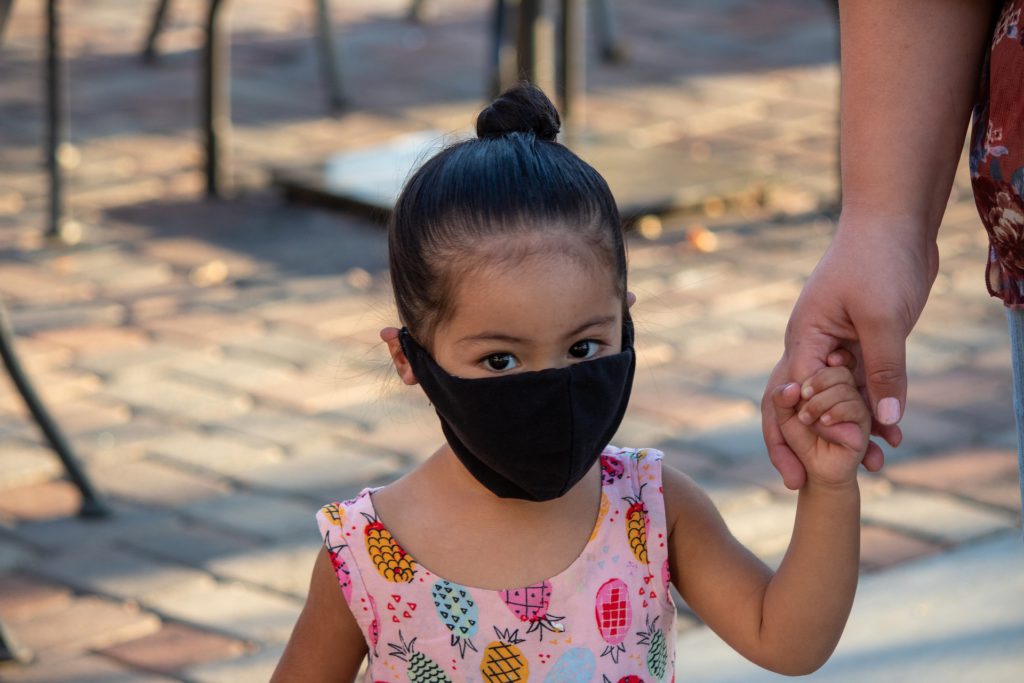The state of North Carolina has committed to working on the challenging issue of homelessness among young children by adopting the 2019 Early Childhood Action Plan (ECAP). The ECAP addresses many aspects of young children’s lives, including safe and secure housing. By 2025, the state aims to reduce the percentage of children experiencing homelessness by 10%.[1] Even with this laudable goal met, more than 20,000 children under age 6 still will be without permanent homes. The ultimate goal, of course, is to have enough affordable housing for all children and their families to have safe and secure housing. Until that happens, the need remains to support shelters and transitional housing programs that include families with young children as they struggle through the trauma of homelessness.
Introducing Increasing ECE Access for Families Experiencing Homelessness
Child Care Services Association (CCSA), in collaboration with North Carolina State University (NCSU), is piloting the Increasing ECE Access for Families Experiencing Homelessness program. Funded as part of North Carolina’s Preschool Development Grant,[2] the project is designed to:
- Provide technical assistance and training to a selected small group of family shelters that serve families with children under age 6;
- Introduce and provide assistance to the selected shelters as they use the newly validated and revised Early Childhood Self-Assessment Tool for Shelters;
- Help the shelters create environments that foster young children’s development and support their families; and
- Assist shelters in deepening relationships with local early childhood (EC) programs and leaders to encourage child enrollment and build collaboration between shelters and EC organizations.
CCSA is contracting with Partners for Impact (PFI), consultants with significant family shelter experience, to lead the pilot project. Founder Beth Bordeaux explains: “At Partners for Impact, we address the vulnerabilities people experience from societal inequities (such as homelessness) by impacting systems and organizations. Having experience in both early childhood systems and homeless service systems, we recognize the deep need for cross engagement to ensure that young children who are experiencing homelessness are also receiving direct support to help them build resiliency.”
Pilot Project Details
During the project, the selected shelters will receive technical assistance and training, complete the self-assessment, develop action plans based on the results and initiate changes to their programs and/or environments. The changes may include modifying policies, changing the physical space, buying child-sized furnishings, connecting to the community’s early childhood programs and more. Small grants will be available to help pay for materials, equipment, etc. At the end of the pilot, shelter staffs will complete second self-assessments to understand their accomplishments and identify any new areas of work to undertake.
A critical component of the pilot is to develop relationships between community-based early childhood and shelter/transitional housing programs. By strengthening community connections, we hope enrollment in EC programs for children experiencing homelessness will increase. While there is significant federal policy focused on student homelessness once a child reaches kindergarten, much less is available for those 5 and under. This project recognizes that disconnect and helps foster collaboration and community building at the local level. Beyond collaborating with shelters to strengthen their practices for children experiencing homelessness, this pilot project seeks to understand what types of technical assistance and training can support changes in shelter communities to build an increased understanding of the needs of families with young children experiencing homelessness.
Why Supporting Young Children Experiencing Homelessness Matters
Nationally, 1.4 million children under 6 years of age experienced homelessness in 2017-2018,[3] or one out of every 16 children under age 6. This means it is statistically possible at least one child in every preschool classroom is experiencing homelessness. In N.C. alone, there were 27,989 children under 6 experiencing homelessness in 2018.[4]
Homelessness brings with it a variety of issues for young children and their families. Without stable living arrangements, lives are completely uprooted. Moving from place to place, from a car to a motel to a friend’s house, and then back to a car or at best to a shelter, for example, can have lasting effects. Children and families experiencing homelessness are extremely vulnerable and have few places to turn. Hunger, the loss of possessions, the invisibility within a community and the uncertainty of what will happen next can affect the development of young children.
In fact, Children’s HealthWatch said, “…there is no safe level of homelessness among young children…The younger and longer a child experiences homelessness, the greater the cumulative toll of negative health outcomes, which can have lifelong effects on the child, the family and the community.”[5] If they are able to enroll in an early childhood program, they are behind before they even start. Yet it is precisely an early childhood program that can provide some of the stability and support that the child and family need.
In addition to the structure, an early childhood program provides nurturing teachers, early learning opportunities and nutritional meals and snacks each day go a long way to supporting a young child experiencing homelessness. Precisely because of the health and developmental risks faced by a young child experiencing homelessness, the ECE Access for Families Experiencing Homelessness pilot project focuses on bringing shelters and early childhood communities together to encourage enrollment of these children into programs that can support and help sustain them and their families.
To learn more, visit the Early Childhood Homelessness page on CCSA’s website.
[1] Early Childhood Action Plan, North Carolina Division of Health and Human Services.
[2] Funding for this project is from the US DHHS CFDA#93.434, ESSA Preschool Development Grants Birth-Five, NC DHHS, NCSU and Child Care Services Association.
[3] Yamashiro, A., and McLaughlin, J. (2020). Early Childhood Homelessness State Profiles 2020, U.S. Department of Education
[4] Ibid.
[5] Megan S., Richard S., and Lisa S. (June, 2015). Compounding Stress, Children’s HealthWatch.



